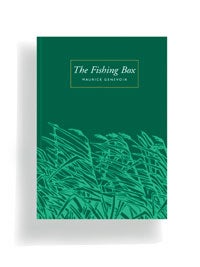Translated from the French by Dexter Petley and Laure Claesen in 2005 Published by The Medlar Press (www.medlarpress.com) 199 pages with numerous linocuts Price: Cloth £ 27.50, Leather £ 120.00 Reviewed by Barrie Rickards This Book was first published in 1926 by Bernard Grasset of Paris and is little known to English readers, yet is regarded by some as one of the greatest ever angling books. Whether this is true or not I’m not so sure, but the quality of writing is certainly outstanding, of Yatesian impact in his descriptions of scenes, of atmosphere, of what motivates an angler. And of course, the French never apologise for angling because the whole nation regards it as supremely important in many ways – as a philosophical standpoint for a start. The sense of that does come over in this book: on one occasion the whole village celebrates a fishing match, by eating and drinking, of course, and by having a carnival. There is great depth in this book. It almost constantly examines social positions, and philosophy, as well as practical angling (not instructions I hasten to add). It traces the angling progress of a young man, Daniel Bailleul, as he begins fishing the Loire for bleak, then roach, then chub and, later pike. He comes under the influence of an old man, a fanatical angler called Najard, whose fishing box (of the title) he inherits after Najard’s passing. The approaches to fishing are of the time too: pike fishing is with a big float and at least two pilot floats, deadbait fishing is only with sink and draw, or spun deadbaits, never with static deadbaits (indeed, only a few short years ago the French simply would not believe that pike would take a static bait at all). Pike were grasped by the eye sockets, as they were here until the 1940’s. They were eaten, of course, as were the bleak, roach and chub. The opening chapter is called ‘Opening’! Jon Ward-Allen, the publisher tells me that he found it puzzling. It is, in detail, because the allegory is elusive, but in principle it’s simple enough: Bailleul is odd, having survived the war, unlike his school friend angler, and he is dreaming of the past of Najard, and Paul Jeanneret. The last chapter is called ‘Closing’ and I think Genevoix closes his account of his angling life by closing Najard’s fishing box. He states that it closed itself, without his help. If there is a weakness in this splendid book, it is in the middle chapters, on the dramas, the frogman, the square dip-nets and the shoal of su When you purchase through links on our site, we may earn an affiliate commission, which supports our community.
|
Welcome!Log into your account














